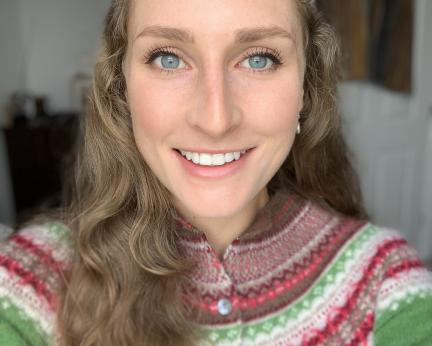From age 14 I knew I wanted to be a dentist – the mix of art, science, decision making and problem solving was fascinating, so I set about getting a variety of work experience including with Special Care Dentists.
My own dentist was a lovely woman who I had known for many years, and my best friend’s mother was the local Specialist in Special Care Dentistry. It was important to see women in leadership roles, and these along with many others inspired and supported me to follow my current career path.
At A-level I did not meet the entry requirements for dentistry, so instead did a Biomedical Sciences degree before applying for a four-year postgraduate dentistry degree.
I was really pleased to have three offers to choose from. One of the most appealing things about the postgraduate degree was that I could get financial support through student loans.
I did my Foundation year before doing my first year of Dental Core Training (DCT) in Oral and Maxillofacial Surgery (OMFS) at the Royal Lancaster Infirmary. After that, I was a Community Dental Officer (CDO) in Hereford, then in DCT2 I did a year in OMFS in the Cumberland Infirmary, Carlisle, before becoming a CDO in West Cumbria. Finally, I applied for my current role as Specialist Registrar in Special Care Dentistry.





